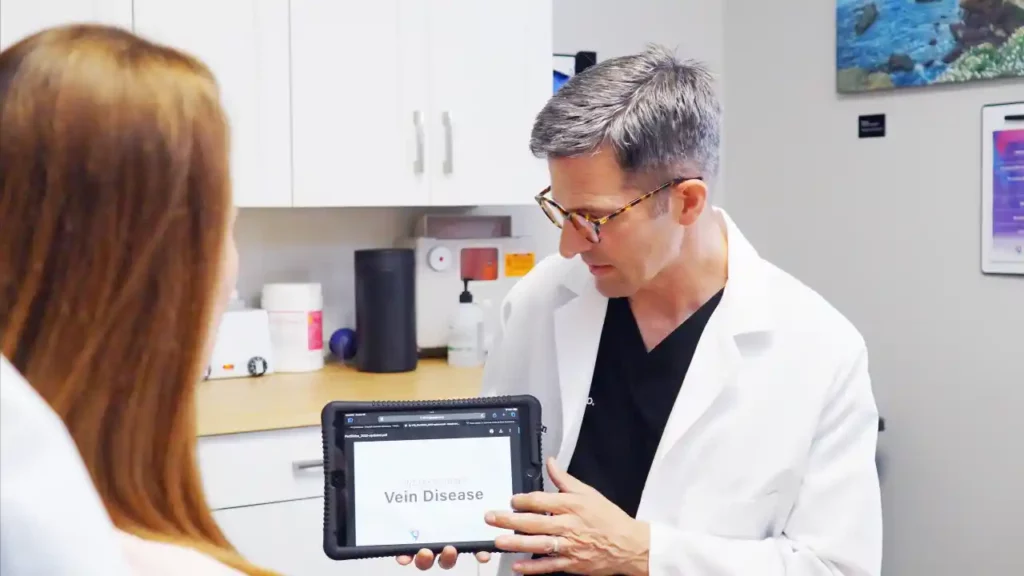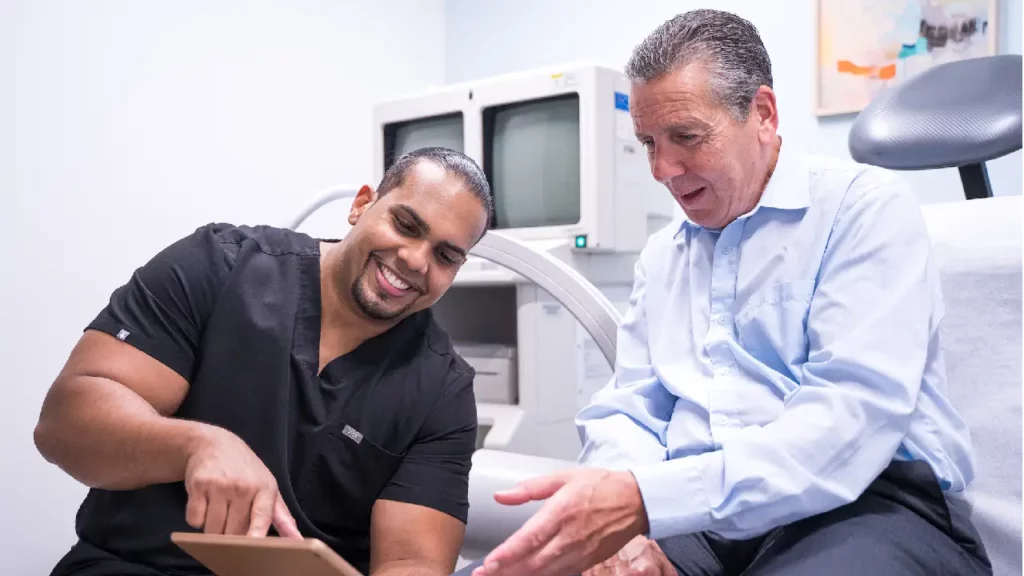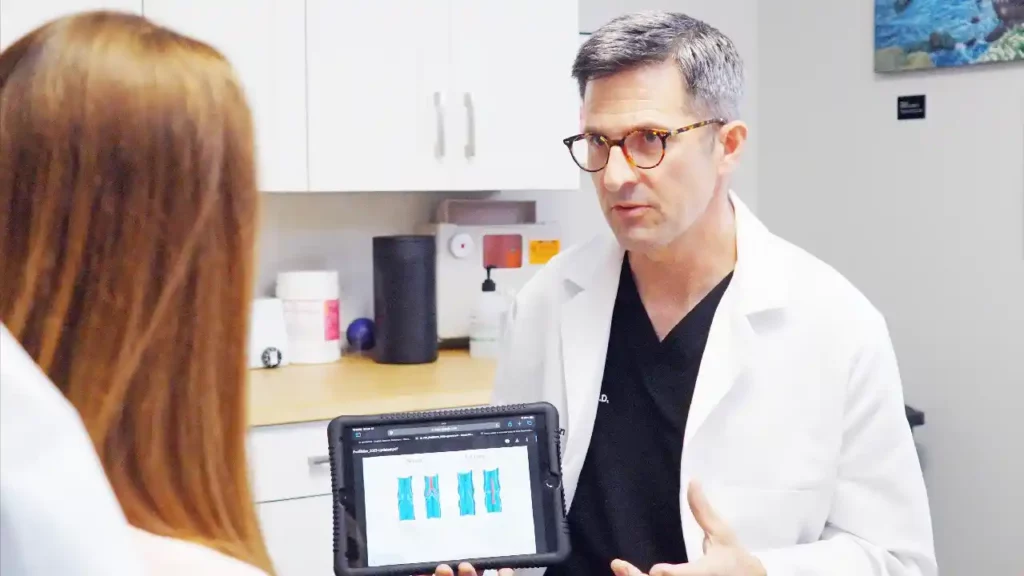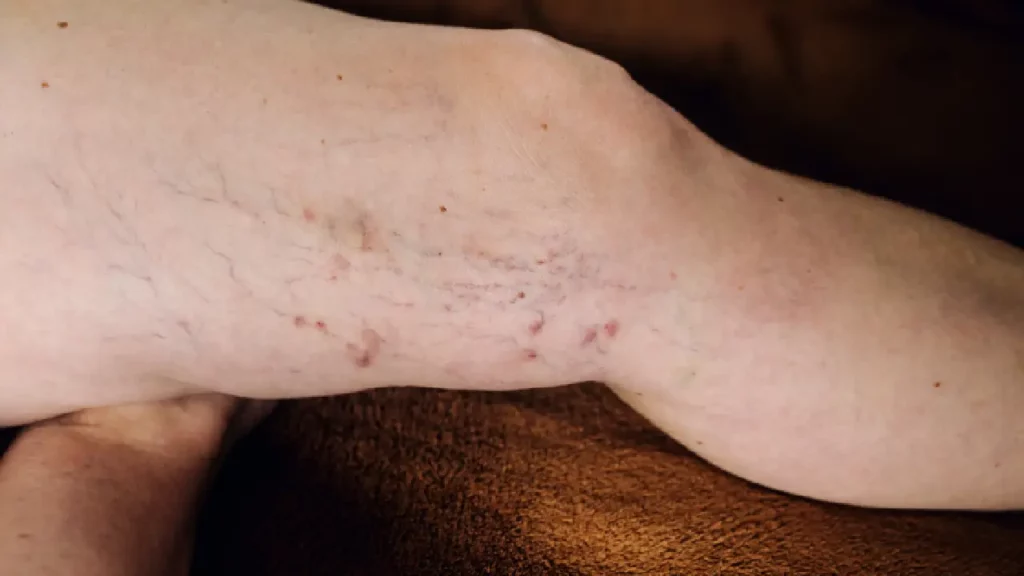Introduction to Vein Health and Importance
Let’s dive right into vein health and why it matters more than you might think. Veins are not just tubes in your body; they are the highways that return blood back to your heart. Think of them as your body’s backroad system, ensuring everything runs smooth and steady. When they’re not working right, it means trouble for your overall health. Ignoring vein problems can lead to discomfort, pain, and even severe health issues down the line.
So, understanding the early signs that something’s up with your veins is key to getting ahead of any potential problems. And guess what? You don’t need to be a medical expert to spot these signs.
Keeping your veins in check means you’re taking a big step in looking after your overall well-being. Remember, when it comes to health, the little things you do now can save you from big problems later. Let’s get into those signs to watch out for, shall we?
Sign #1: Persistent Leg Pain and Heaviness
If you’re constantly feeling like your legs are weighed down by invisible weights, it’s not just tiredness. Persistent leg pain and a sense of heaviness are clear signals that your veins might be crying for help. These symptoms often mean your blood isn’t flowing right, possibly because of varicose veins or other vein issues. It’s not just about discomfort; it’s your body waving a red flag that something’s off.
Ignoring it won’t make it go away. In fact, brushing it off could lead to worse problems down the line. So, if you’re experiencing these symptoms regularly, it’s time to get it checked out. A vein clinic can assess what’s going on and guide you on what to do next. Don’t let it slide; your legs and health deserve attention.
Sign #2: Visible Varicose or Spider Veins
Seeing varicose or spider veins pop up is a big red flag that you should consider visiting a vein clinic. You might notice these as raised, twisted veins that are blue or dark purple. They often appear on legs and can signal poor circulation. Spider veins, on the other hand, might look like thin lines, webs, or branches, and are usually red, purple, or blue.
While they’re mostly a cosmetic issue for many, they can sometimes ache, burn, or lead to more serious problems down the line. Don’t shrug this off. If you spot them, it might be time to check in with a vein specialist to discuss your options and prevent further issues.
Sign #3: Leg Swelling That Worsens Throughout the Day
If your legs are swelling more as the day goes on, it’s a red flag. This isn’t just about having tight shoes or standing a lot. It’s deeper than that. When your legs swell and get worse through the day, it can pointto poor blood flow back to your heart. Think of your veins like roads. If there’s a traffic jam, everything backs up. Same with your veins. If blood can’t flow smoothly, you get swelling.
It’s your body’s way of waving a flag, saying something’s not right. And it’s not something to brush off. Left unchecked, this can lead to bigger health issues down the road. So, if you’re seeing your legs puff up regularly, it’s time to get it checked out at a vein clinic. They can pinpoint the problem and get you on the right track. Don’t wait.
Sign #4: Changes in Skin Color or Texture Around the Legs
If you notice your skin color turning darker or the texture becoming thicker around your legs, it’s a signal not to ignore. These changes can mean your blood isn’t flowing well, and your leg veins are under stress. When veins struggle to do their job, blood can pool up, leading to these visible changes on your skin. It’s more than a cosmetic issue; it’s your body alerting you something’s off with your circulation. Before it gets more serious, like turning into ulcers or causing other complications, seeing a specialist can help.
They can assess your veins and suggest ways to improve blood flow, keeping your legs healthy. Ignoring these signs might lead to bigger problems, so if you’re seeing discoloration or feeling like the texture of your skin is off, it’s time to consider a visit to a vein clinic.
Sign #5: Venous Ulcers or Sores That Won’t Heal
If you notice sores or ulcers on your legs that just don’t seem to heal, it’s a significant sign you shouldn’t ignore. These aren’t just regular cuts or wounds; they’re called venous ulcers, and they indicate a serious issue with your veins. When the blood in your legs doesn’t flow back up to your heart the way it should, pressure builds up.
This pressure can then cause ulcers, which are basically injuries to your skin from the inside out. These ulcers can be painful and, more importantly, they’re a big red flag that your veins need professional attention. Simply put, if your skin is breaking down and those spots aren’t healing, it’s time to search for a vein clinic and get checked out. Ignoring itcould lead to more severe health complications.
How a Vein Clinic Can Help
A vein clinic specializes in diagnosing and treating vein problems, offering solutions that might not be available at your regular doctor’s office. Varicose veins and spider veins are the usual suspects. Beyond the cosmetic concerns, these vein issues can lead to discomfort, pain, and more severe health problems if not addressed. At a vein clinic, experts use advanced techniques to treat vein issues, which can include laser treatments, sclerotherapy (injections), and minimally invasive surgeries.
These treatments can drastically reduce symptoms and improve the appearance of veins, leading to better quality of life. Plus, many of these procedures have short recovery times, allowing you to get back to your daily activities quickly. In essence, visiting a vein clinic can not only help you solve visible vein problems but also prevent future health complications related to vein health.
What to Expect During Your Visit to the Vein Clinic
When you decide it’s time to visit a vein clinic, you might wonder what the process will be like. Let’s clear that up right away. First, the staff will warmly welcome you and take down your medical history. This step is crucial as it helps the specialists understand any underlying health issues you might have. Next, you’ll have a consultation with a vein specialist who will examine the affected veins. They might ask you to stand or walk to better assess the situation.
Then, expect to undergo an ultrasound. This non-invasive test allows doctors to see how blood is flowing in your veins. Based on the ultrasound’s findings, the specialist will present you with treatment options. These could range from lifestyle changes and compression stockings to procedures like sclerotherapy or laser treatments. Remember, the goal is to address any discomfort or risks associated with vein issues and improve your quality of life. So, while it might seem daunting to visit a vein clinic, know that you’re taking a step towards better health.
Preventative Measures and Lifestyle Changes
Taking steps early to manage vein health can save you from more serious issues down the line. Here’s what you can do:
- Stay active. Regular movement helps keep your blood flowing smoothly.
- Watch your weight. Extra pounds put unnecessary stress on your veins.
- Elevate your legs when you can, especially if you sit or stand for long periods.
- Wear compression stockings if you’ve got a family history of vein problems or spend a lot of time on your feet.
- Finally, cut back on salt to prevent swelling that can strain your veins. Making these lifestyle changes does more than improve vein health; it boosts your overall well-being.
Don’t Wait to Seek Help
If you’re seeing any of the signs we’ve talked about—swelling, discomfort, visible veins looking odd, leg ulcers, or a family history of vein issues—it’s crucial to act. Don’t sit on these symptoms thinking they’ll just disappear. Vein problems usually don’t fix themselves and waiting can only make things worse. A quick visit to a vein clinic can make a huge difference.
Experts there can assess your situation, offer solutions, and help you avoid more severe complications down the line. Remember, when it comes to health, it’s always better to be safe than sorry. Seeking help sooner rather than later can save you from bigger problems and ensure your legs stay healthy. So, don’t hesitate. If you’re experiencing any of these signs, book that appointment. Your future self will thank you.






